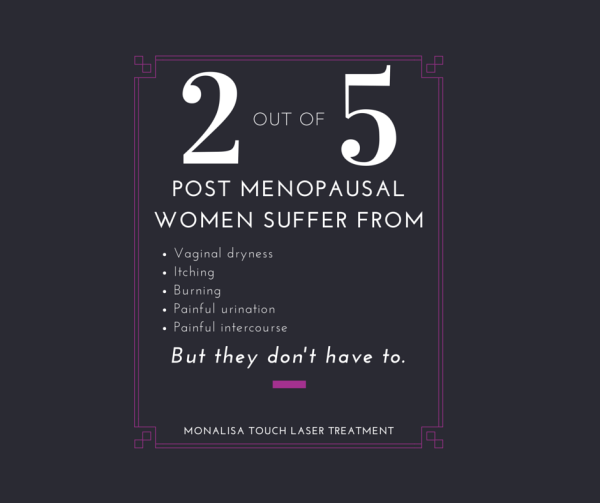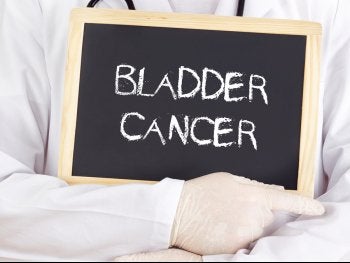-
A Look at the Causes and Treatments of Urinary Incontinence
The loss of bladder control is referred to as urinary incontinence . The severity of this problem can vary widely. However, whether you experience occasional leakage or frequent accidents, it’s a good idea to consult a urologist. Although many people find bladder leakage to be an embarrassing problem, it’s also important to realize that it’s a common health issue that should be evaluated by a specialist.
 Temporary Causes
Temporary Causes Urinary incontinence isn’t always the result of an underlying medical problem. A urologist might ask you about your lifestyle because the consumption of alcohol, carbonated drinks, and caffeinated beverages can contribute to urinary incontinence. Certain medications, including muscle relaxants and sedatives, may also be the culprit of temporary incontinence.
Persistent Causes
If you experience persistent urinary incontinence, it may be due to an underlying medical condition such as a neurological disorder or an obstruction of the urinary tract. In men, prostate cancer or an enlarged prostate may lead to incontinence. Women may experience urinary incontinence because of pregnancy, childbirth, menopause, or a hysterectomy.
Behavioral Techniques
There are noninvasive treatment options for urinary incontinence . A urologist might recommend that you try behavioral techniques, for example. These include scheduled toilet trips, double voiding, and careful management of fluids and foods. Bladder training may help those who feel the frequent need to urinate.
Medications
A urologist may prescribe medications to help you control your symptoms. Some examples of medications that may be helpful include anticholinergics and mirabegron. Men may benefit from alpha blockers, while women might try topical estrogen.
Surgical Intervention
When lifestyle changes, behavioral techniques, and medications aren’t enough to manage urinary incontinence, you might consider surgical intervention. Your urologist can explain the types of procedures that may be helpful for you, which may include sling procedures, bladder neck suspension, and prolapse surgery.
Urology Associates, P.C. provides comprehensive urinary incontinence diagnosis and treatments at our state-of-the-art center for urology in Nashville . If you’re suffering from incontinence or another urologic condition, don’t delay seeking the help you need. A urologist at our facility can offer recommendations based on your unique needs and preferences.
-
MonaLisa Touch FAQs

MonaLisa Touch, a new treatment option offered by Urology Associates, delivers immediate and long-lasting relief through laser technology.
Take a look at a few of the frequently asked questions about this life-changing procedure.
Q: What happens during treatment?
A: The procedure will seem similar to your annual exam, and will likely be even quicker. Your healthcare provider will insert the laser tip into your vagina and deliver laser energy “pulses”. The total procedure time is less than 5 minutes.
Q: Does it hurt?
A: The laser energy itself is painless. Some patients report mild discomfort with the laser tip insertion during the first procedure due to vaginal dryness.
Q: How soon can I expect results?
A: Many patients have reported that they experience relief right away. Virtually all patients have experienced relief by the second treatment, or week 6.
Q: How long does treatment last?
A: MonaLisa Touch provides long-lasting results. A once-a-year single treatment is recommended to maintain symptom relief. This can be done quickly and conveniently during your annual checkup.
For more information about MonaLisa Touch, visit our website or give us a call at (888) 329-7700.
-
How Urology Associates Can Help Women with Sexual Dysfunction
The Women’s Institute for Sexual Health (WISH) at Urology Associates, P.C., is one of the few clinics in the country that specializes in the diagnosis and treatment of female sexual dysfunction. Women who are experiencing sexual dysfunction in Nashville, and beyond, can turn to our sexual health professionals for guidance on a variety of common conditions, such as hypoactive sexual desire disorder, female sexual arousal disorder, sexual aversion disorder, and female orgasmic disorder, just to name a few.
You can hear more about sexual health in women by watching this interview with the Clinical Director of WISH. She explains some common forms of sexual dysfunction and discusses their alarming prevalence as compared to sexual dysfunction among men. She also discusses treatment guidelines implemented at WISH.
A division of Urology Associates, P.C., The Women’s Institute for Sexual Health (WISH) provides specialized care in our state-of-the-art facility. At WISH, women will find compassionate and highly trained professionals who are dedicated to promoting better sexual health and quality of life.
-
MonaLisa Touch: Fast, Simple and Safe

When estrogen levels decline after menopause, many changes occur. Millions of women experience symptoms such as vaginal dryness, itching, burning or painful intercourse as a consequence of these changes. Many women suffer silently, and those who seek treatment find their options limited: messy estrogen creams or hormone replacement therapy, which isn’t for everyone.
MonaLisa Touch laser treatment is a simple procedure that takes less than 5 minutes.
It delivers both immediate and long-lasting relief. And it’s clinically proven to really work.
- Simple, painless laser energy
- In-office, no anesthesia
- No side effects
- No downtime
- Symptom relief after just one treatment
- Thousands of women successfully treated since 2008
A new procedure that patients have called “life-changing”.
MonaLisa Touch delivers gentle laser energy to the vaginal wall that stimulates a healing response and enhances moisture levels in the vaginal canal. A typical course of treatment is three procedures over 12 weeks.
Many women report symptom relief after the very first treatment and even greater improvement after treatments 2 and 3.
For more information about MonaLisa Touch laser treatment, visit our website or give us a call at (888) 329-7700.
-
Understanding Female Sexual Dysfunction
Traditionally, research and treatment development in the field of sexual dysfunction has been applied primarily to men. However, it has been suggested that women may suffer from sexual dysfunction at a higher rate than men. While many people are hesitant to discuss matters pertaining to sexual health , consulting a urology specialist may help women improve their quality of life and overall well-being.
 Common Concerns
Common Concerns Sexual dysfunction is a multifaceted problem that may involve numerous concerns. It’s common for women to experience a low libido, or lack of sexual interest. Some women experience problems becoming physically aroused while others have trouble achieving an orgasm. Painful intercourse is another common concern.
Possible Causes
By consulting a urologist , women can discover the underlying causes of sexual dysfunction. For example, painful intercourse may be caused by medical problems such as endometriosis, ovarian cysts, vaginitis, or vaginismus. This last condition refers to painful muscle spasms, which can develop in women who fear penetration, typically because of previous trauma. Other physical causes of sexual dysfunction may include medications such as antidepressants or medical conditions such as diabetes, hormonal imbalance, neurological diseases, and heart disease. There may also be psychological causes of sexual dysfunction, including chronic stress and anxiety, depression, and relationship problems.
Diagnostic Tests
When a woman consults a urologist about sexual health issues, she can expect to discuss her symptoms. Then, the doctor will likely perform a physical exam, including a pelvic exam and Pap smear. Sometimes, other tests may be requested to rule out underlying medical problems.
Treatment Options
A woman’s treatment options for sexual dysfunction depend largely on the underlying causes. Treatment may be available to resolve medical problems that can cause sexual dysfunction. Or, the patient may benefit from using relaxation techniques, distraction techniques, and stimulating non-coital behaviors, such as massage.
The Women’s Institute for Sexual Health (WISH) at Urology Associates, P.C. offers sensitive care for women suffering from sexual dysfunction in Nashville and beyond. Our highly trained urology team provides diagnostic and therapeutic services. Urology Associates, P.C. also consult with some of the area’s leading professionals, including gynecologists, massage therapists, and psychologists, to provide women with a multidisciplinary approach to treatment. Learn more on our website or by calling us at (888) 329-7700.
-
Who Is Urology Associates?

If your physician has referred you to a urologist, you can rely on the team at Urology Associates, P.C. to provide personalized, compassionate care. Our 12 locations throughout the Nashville area and our 10 satellite clinics means that our urology patients are never very far away from getting the help they need. We are widely recognized as the leading provider of treatments for issues related to urology in Nashville and beyond.
At Urology Associates, P.C., you’ll have access to our on-site diagnostic and imaging center, which features the latest in medical technology to inform accurate diagnoses and effective treatment recommendations. At our on-site Urology Surgery Center, patients can undergo non-invasive treatments and minimally invasive surgeries. We are also pleased to offer our patients a suite of specialty services at our Advanced Therapeutics Center, Women’s Institute for Sexual Health, and our new Men’s Health Clinic.
There’s no need to suffer with kidney stones, sexual dysfunction, incontinence, or related health problems. Contact Urology Associates, P.C. today and let us know how our team can help you.
-
A Patient’s Guide to Bladder Cancer
Your bladder is an organ in your pelvic region that is responsible for storing urine before it is expelled from the body. Hearing that you’ve been diagnosed with cancer is never easy to cope with. However, the good news is that bladder cancer is most often detected when it is still in its early stages, which means that it is more easily treatable as compared to diagnosis in the later stages. After your diagnosis, you’ll likely be referred to a urologist to discuss your treatment options.
 Types
Types Transitional cell carcinoma comprises the bulk of all bladder cancer cases. With this type of bladder cancer, the malignant cells appear similar to the urothelial cells, which are found on the inside of the bladder. If your urologist describes the cells as non-invasive, it means that the cancer has not penetrated the deeper layers of the bladder. Invasive cancers, on the other hand, have begun to spread. Less common types of bladder cancer include squamous cell carcinoma, adenocarcinoma, small cell carcinoma, and sarcoma.
Symptoms
Urologists recommend that patients act as their own advocates for their well-being. If you notice any unusual symptoms, it’s important to make an appointment for a check-up as soon as possible. Ignoring the symptoms of bladder cancer, such as bloody urine, gives the cancer an opportunity to spread. Other symptoms include frequent or painful urination, and pain of the back or pelvis.
Treatment Options
Many factors will inform your treatment recommendations, including the type and stage of cancer , your personal preferences, and your general health. Different surgical approaches are available for both early-stage and late-stage cancer. Chemotherapy may be used before or after surgery, or without surgery. Bladder cancer patients might also receive biological therapy drugs, or immunotherapy, which stimulates the immune system to fight the disease. Less commonly, a physician might recommend radiation therapy for bladder cancer.
If you’ve been diagnosed with bladder cancer in Nashville, you can consult a specialist at Urology Associates, P.C. Our urology specialists can help you understand the disease and explore your treatment options. In the event that surgery is a viable option for you, you can take advantage of our on-site Urology Surgery Center.
-
How Are Kidney Stones Treated?
Kidney stones are a common and very painful health problem. Previously, treatment for kidney stones consisted of open surgery, which required a long recovery time. However, as you’ll learn by watching this video, there have been several advances in the urology field over the past few decades.
This video features Dr. Charles Eckstein of Urology Associates, P.C. This urologist explains three treatment options available to patients, including a percutaneous nephrostomy, which involves making a small incision in the back and guiding a needle into the kidney. Then, a scope is passed into the kidney to remove the stone. The other treatment options are shock wave lithotripsy and ureteroscopy.
Urology Associates, P.C. provides the latest options for kidney stones treatment in Nashville as part of our comprehensive range of urology services. We encourage patients who are anticipating urology surgery to download our informational brochure on surgical procedures.
-
What Conditions Are Treated at The Women’s Institute for Sexual Health?
Urology Associates, P.C. is a urology clinic dedicated to going above and beyond to meet the needs of our patients. In addition to providing urologic care for conditions such as kidney stones, our urology team provides care for women’s sexual health at The Women’s Institute for Sexual Health (WISH). At WISH, our urologists can diagnose and treat a wide array of medical conditions.

Interstitial Cystitis
Also called painful bladder syndrome , this chronic condition involves bladder pain and pressure, which can cause mild to severe discomfort. Normally, the bladder sends impulses along the pelvic nerves to tell the brain when it’s time to void the bladder. A woman with interstitial cystitis has “confused” signals, which cause her to feel the need to urinate more often, though the amounts may be inconsequential.
Pelvic Organ Prolapse
A woman’s pelvic organs are normally supported by muscles and ligaments. When these supporting structures become weak, these organs can prolapse, or become displaced. Pelvic organ prolapse can occur after childbirth, menopause, or a hysterectomy. Often, urologists recommend surgical procedures to correct this problem.
Urinary Incontinence
Urinary incontinence is a condition that affects many women. This condition is broadly defined as the unintentional loss of urine. There are different types of incontinence, such as stress incontinence. This occurs when urine leaks out unintentionally when the individual coughs, sneezes, or engages in other activities that place stress on the bladder. In many cases, lifestyle modifications can help. Treatment for incontinence may also include bladder training, double voiding, and scheduled toileting, along with pelvic floor muscle exercises. If these treatments are ineffective, a urologist may recommend medications, medical devices such as a pessary, or surgery.
These are just a few of the conditions our urologists can treat at The Women’s Institute for Sexual Health at Urology Associates, P.C. To better support women’s sexual health in Nashville, our team members strive toward providing extensive patient education and sensitive, specialized care. You can call (888) 329-7700 to reach a friendly staff member or explore our website to learn more about us.
-
What Is a Urologist?
 Some doctors are primary care physicians, while others are specialists. A urologist is a specialist who diagnoses and treats diseases and disorders of the urinary tract in both male and female patients. Urologists also treat medical conditions of the male reproductive organs. Urology is a surgical specialty. However, a urologist receives in-depth training across a broad range of areas, including internal medicine and gynecology. There are also subspecialties within the field of urology, including pediatric urology, male infertility, female urology, and urologic oncology (Prostate Cancer, Bladder Cancer and Testicular Cancer).
Some doctors are primary care physicians, while others are specialists. A urologist is a specialist who diagnoses and treats diseases and disorders of the urinary tract in both male and female patients. Urologists also treat medical conditions of the male reproductive organs. Urology is a surgical specialty. However, a urologist receives in-depth training across a broad range of areas, including internal medicine and gynecology. There are also subspecialties within the field of urology, including pediatric urology, male infertility, female urology, and urologic oncology (Prostate Cancer, Bladder Cancer and Testicular Cancer). This last subspecialty deals with cancers of the urinary tract such as bladder cancer, in addition to reproductive cancers such as testicular cancer.
Urologists evaluate and treat the many structures that make up the urinary tract and reproductive system. These include the kidneys, the prostate, adrenal glands, ureters, urethra, bladder, and seminal vesicles. Urologists address conditions such as bladder prolapse, urinary incontinence, enlarged prostate, and prostatitis. They also perform surgeries to remove kidney stones, a common problem of the urinary tract. In addition to surgical procedures, urologists can treat conditions with medical management.
If you’re looking for a urologist in Nashville , call Urology Associates, P.C. at (888) 329-7700. Our urology practice treats a broad range of conditions, including kidney stones, urinary incontinence, and certain cancers.
Recent Posts
categories
- Uncategorized
- Bladder Cancer
- Women's Sexual Health
- MonaLisa Touch
- Urology
- Urologist
- Erectile Dysfunction
- Kidney Cancer
- Incontinence
- Prostate
- MonaLisa Touch Laser Treatment
- Kidney Stones
- Urinary Tract Infections
- Event
- Sexual Dysfunction
- Testicular Cancer
- Prostate Cancer
- Urology Surgery Center
- urinary incontinence
- vaginismus
- noncoital pain disorder
- Hypoactive Sexual Desire Disorder
- Infographic
- provenge
- Xofigo
- robotic surgery
- hormone replacement
- diabetes
- renal cell carcinoma
- pelvic pain
- hematuria
- sexual health
- chronic testicular pain
- premature ejaculation
- Men's Health Clinic
- Dr. Melvin Seard
- Interstitial Cystitis
- vasectomy
- overactive bladder
- vaginal atrophy
- nocturia
- bladder infections
- urethral strictures
- Acute Epididymitis
- low sex drive
- circumcision
- pelvic floor dysfunction
- Peyronie's Disease
- prostatitis
- female sexual dysfunction
- varicocele
- difficult urination
- low libido
- PSA levels
- male fertility
- penile prosthesis
- prostatic intraepithelial neoplasia
- male infertility
- estrogen levels
- nurse navigator
- stress urinary incontinence
- vaginal yeast infection
- elevated psa
- painful sex
- adult circumcision
- epididymitis
- OAB
- kidney infection
- penile cancer
- pelvic organ prolapse
- Vasectomy Reversal
- bone health
- cystectomies
- clinical trials
- bloody urine
- Advanced Therapeutic Center
- WISH MedSpa
- neurogenic bladder
- WISH Team
- prostate biopsies
- BPH
- fecal incontinence
- lithotripsy
- osteoporosis
- kidney cysts
